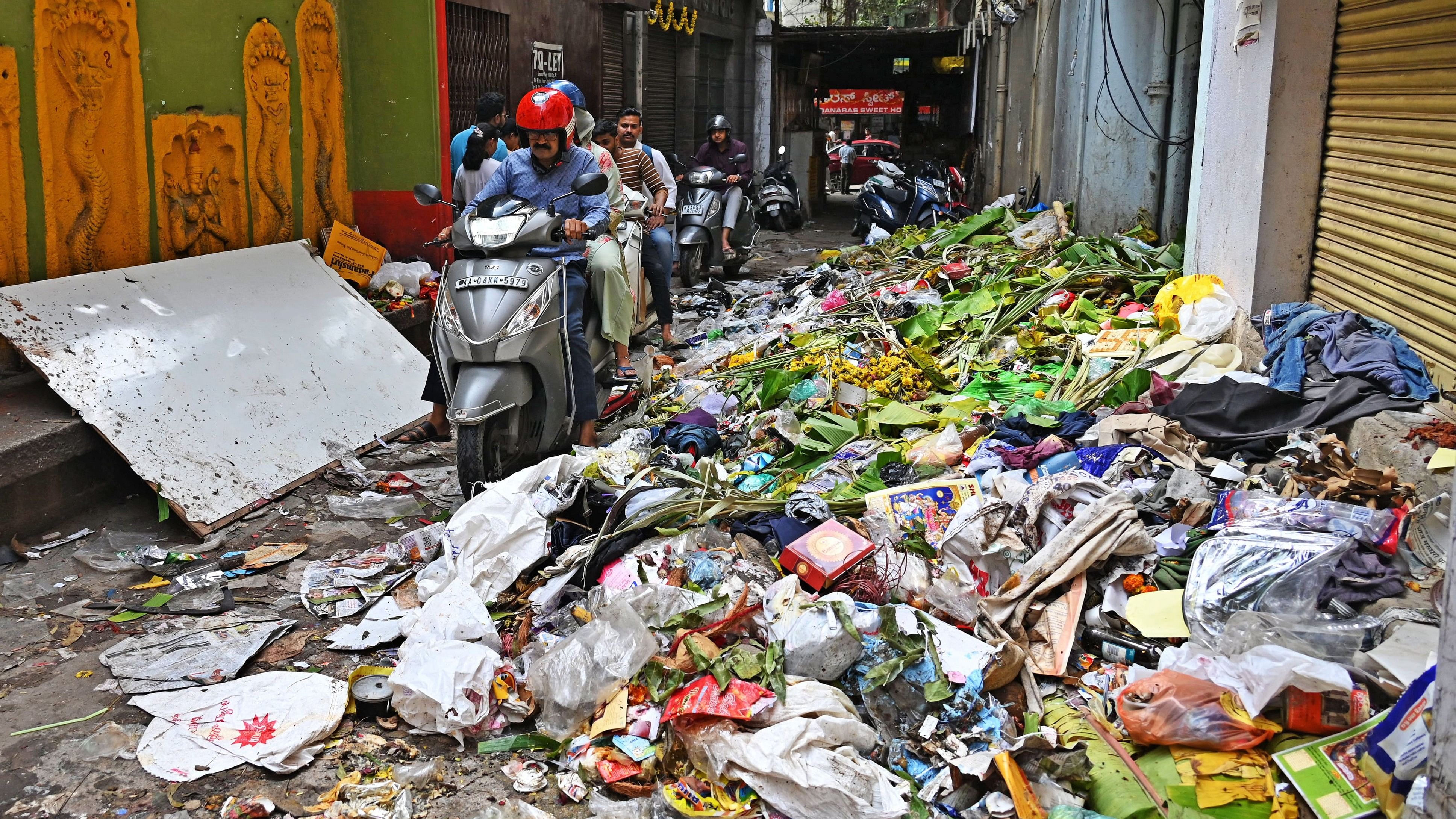
Garbage occupies road space on this stretch at Avenue Road Cross, posing a threat to motorists.
Credit: DH Photo/Pushkar V
Bengaluru: Schools, colleges and offices are set to restart after the long weekend, but city streets are filled with firecracker waste as a byproduct of the Deepavali celebrations.
Though there was a ban on non-green firecrackers and a stricter enforcement of government guidelines in comparison with previous years, many streets have been littered with firecracker waste for the past three to four days.
The continued use of firecrackers has raised two concerns. First, the environmental hazard and the cost of labour, as there is no proper waste management mechanism in place to dispose of firework waste, which comes under the hazardous waste category, forcing municipal workers to work overtime and be prone to risks.
With hardly any guidelines on segregation and disposal of firework waste, the remains of firecrackers were left on the streets of residential areas and several intersecting roads in the heart of the city. Several areas, including Shanthinagar’s Nanjappa Road and parts of Kalyan Nagar, Hebbal, Yeshwantpur and Rajajinagar, were high on sales, according to firecracker vendors.
D Jayamma, a pourakarmika from Hegganahalli Cross, said firecracker waste was no less than previous years and added that rains on Saturday reduced the burden of cleaning them on Sunday morning. She noted that on Thursday and Friday, several streets were filled with firecracker waste.
Speaking about the risks associated with pourakarmikas being forced to work on festival days without extra pay, Maitreyi Krishnan, a member of All India Central Council of Trade Unions (AICCTU), said that the authorities are posing a danger to the lives of pourakarmikas by not introducing scientific mechanisms to collect and segregate hazardous waste.
"Any amount of firecracker powder coming into contact with fire may pose a danger to the lives of pourakarmikas in the BBMP autos and those who sweep the roads early mornings,” she said, and noted that the authorities must act before casualties are reported.
Experts told DH that firecracker waste must be disposed of as per the Central Pollution Control Board’s guidelines. However, the local civic authority seems to have no proper guidelines to address this issue.
Kiran DA, senior associate at the Indian Institute for Human Settlements, who studies solid waste management in Bengaluru and its suburbs, said that if firecracker powder is mixed with municipal waste during collection and transportation, there is a possibility of contamination. "Disposing of firecracker waste in open land is likely to infiltrate in soil or surface water and further contaminate the environment,” he noted.
Recently, a study of 41 waterbodies in Bengaluru by a team of researchers at Geological Survey of India (GSI) revealed that potentially toxic materials exceeded WHO limits in several of them, with components of chromium, nickel and lead likely to pose high carcinogenic risks to adults and children.
Officials DH contacted from the BBMP and Karnataka State Pollution Control Board (KSPCB) did not specify separate mechanisms to treat hazardous waste.
Calling for scientific disposal and treatment of hazardous waste, Kiran suggested that individuals who used firecrackers must pack the waste separately before handling it to the BBMP autos. He also advised not to burn firecracker waste.